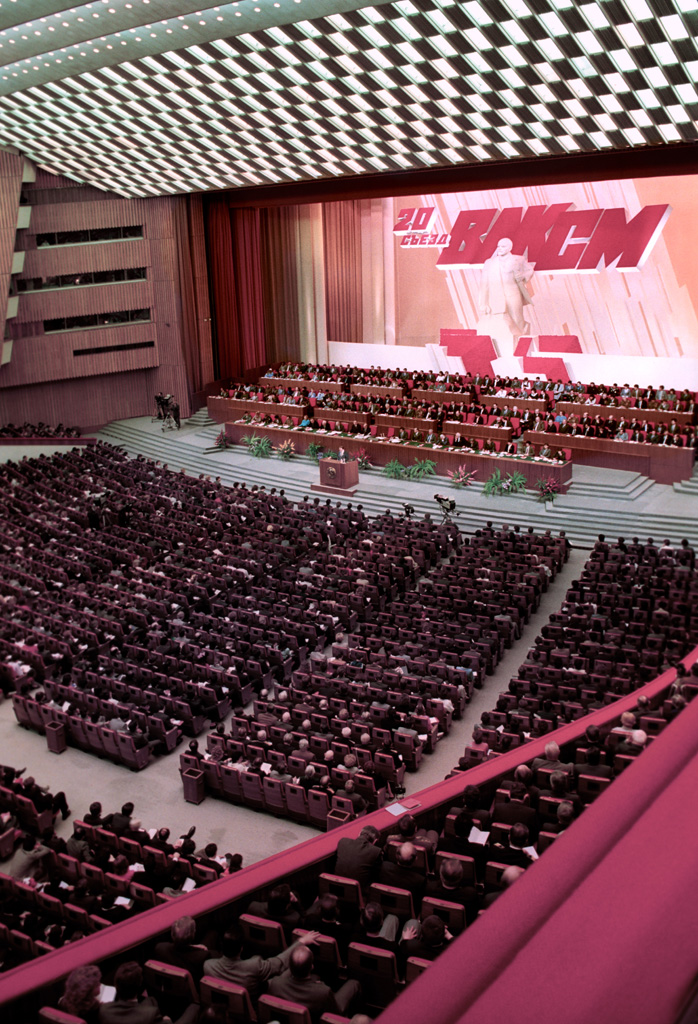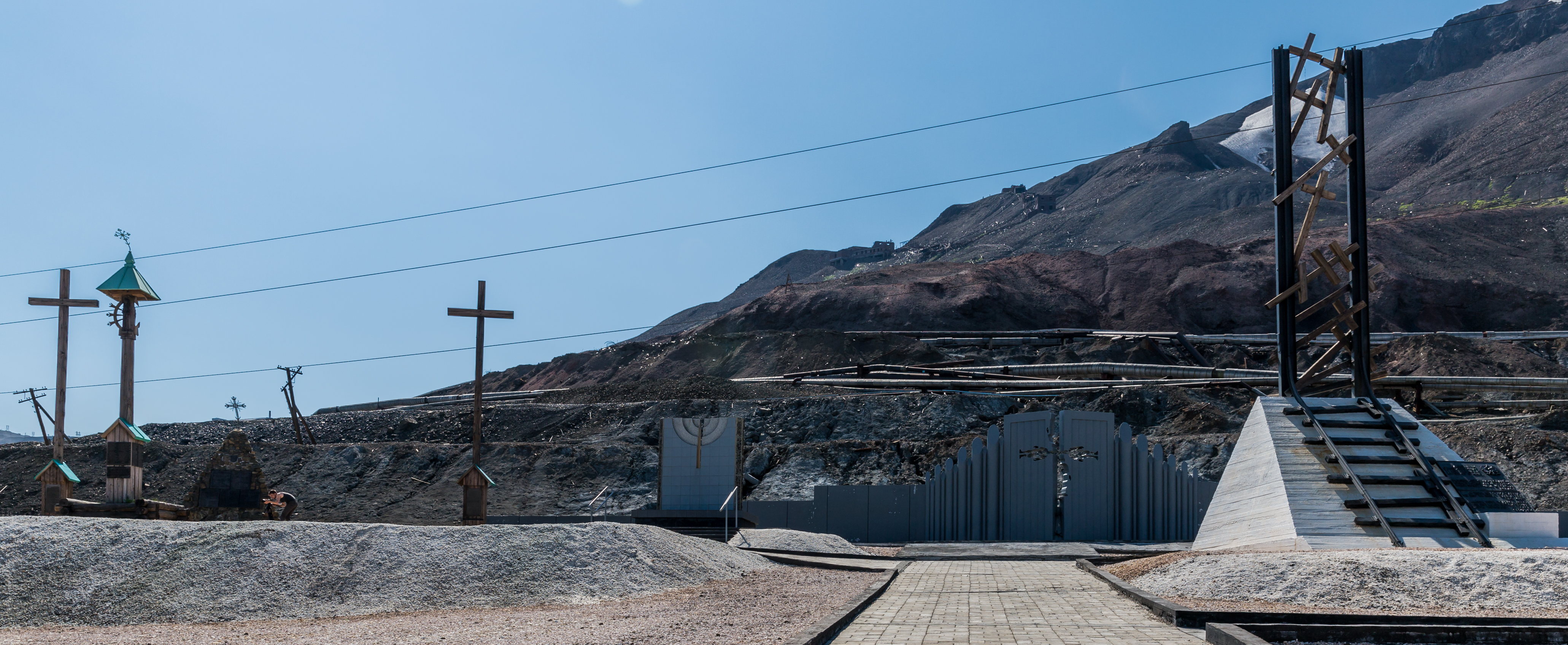|
Alexander Milchakov
Alexander Ivanovich Milchakov (; 11 October 1903 – 17 July 1973) was a Soviet politician and political activist who was known for serving as the First Secretary of the Central Committee of the Komsomol from 1928 to 1929, between the age of 24 and 26. Early life and education Milchakov was born in 1903, in the village of Vyatka (now Kirov) in the Russian Empire. His father was a railroad worker. At the age of fifteen, Alexander Milchakov joined the Socialist Union of Working Youth and became a Deputy of the Council of Workers, Soldiers, and Peasants. Political career He joined the Russian Communist Party (Bolsheviks) in 1919. From 1919 to 1921, Milchakov held minor positions within the Komsomol in Perm and Verkhneuralsk. From 1921 to 1925, he was a member of the Central Committee of the Komsomol. In 1922, he was the youngest delegate to the First All-Union Congress of Soviets. In 1925, he also became involved with the Young Communist International and became a member of ... [...More Info...] [...Related Items...] OR: [Wikipedia] [Google] [Baidu] |
Central Committee Of The Komsomol
The Central Committee of the Komsomol (Russian: Центральный комитет ВЛКСМ, ''Tsentral'niy komitet VLKSM'') was the executive leadership of the All-Union Leninist Young Communist League, commonly known as the Komsomol. According to the Komsomol Charter adopted at the 14th Congress of the Komsomol (1962), the Central Committee "directs the entire work of the Komsomol, local Komsomol bodies, represents the Komsomol in state and public institutions and organizations, approves the editorial board of the central body - "Komsomolskaya Pravda" and other editorial offices, distributes the Komsomol budget and monitors its implementation." The Central Committee of the Komsomol was dissolved on September 28, 1991, along with the Komsomol organization itself. Organization The Central Committee was elected at Komsomol congresses by secret ballot. The Central Committee consisted of full members who could cast a vote and candidate members who had an advisory vote during ... [...More Info...] [...Related Items...] OR: [Wikipedia] [Google] [Baidu] |
Central Control Commission Of The Communist Party Of The Soviet Union
The Central Control Commission (, ''Tsentral'naya Kontrol'naya Komissiya'') was a supreme disciplinary body (since 1934 within the Central Committee) of the Communist Party of the Soviet Union, also known as the ''Party Control Commission'' (1934–1952) and the ''Party Control Committee'' (1952–1990). Its members were elected at the Party Congress or the plenary sessions of the Central Committee. History and function At first there was a single Control Commission, which in 1921 was divided into the Central Auditing Commission, responsible for financial control, and the Central Control Commission, responsible for controlling party discipline. The Party Control Committee oversaw the party discipline of the Party members and candidate Party members in terms of their observance of the programme and regulations of the Party, state discipline and Party ethics. It administered punishments, including expulsions from the Party. The Party Control Committee also considered the appeal ... [...More Info...] [...Related Items...] OR: [Wikipedia] [Google] [Baidu] |
1973 Deaths
Events January * January 1 – The United Kingdom, the Republic of Ireland and Denmark 1973 enlargement of the European Communities, enter the European Economic Community, which later becomes the European Union. * January 14 - The 16-0 1972 Miami Dolphins season, Miami Dolphins defeated the 1972 Washington Redskins season, Washington Redskins in Super Bowl VII, with the Dolphins ending the season a perfect 17-0. This marked the first and only time that an NFL team has had a perfect undefeated season, an achievement the team holds to this day. * January 15 – Vietnam War: Citing progress in peace negotiations, U.S. President Richard Nixon announces the suspension of offensive action in North Vietnam. * January 17 – Ferdinand Marcos becomes President for Life of the Philippines. * January 22 ** ''Joe Frazier vs. George Foreman, The Sunshine Showdown'': George Foreman defeats Joe Frazier to win the heavyweight world boxing championship in Kingston, Jamaica. ** A Royal Jorda ... [...More Info...] [...Related Items...] OR: [Wikipedia] [Google] [Baidu] |
1903 Births
Events January * January 1 – Edward VII is proclaimed Emperor of India. * January 10 – The Aceh Sultanate was fully annexed by the Dutch East Indies, Dutch forces, deposing the last sultan, marking the end of the Aceh War that have lasted for almost 30 years. * January 19 – The first west–east transatlantic radio broadcast is made from the United States to England (the first east–west broadcast having been made in 1901#December, 1901). February * February 13 – Venezuelan crisis of 1902–03, Venezuelan crisis: After agreeing to arbitration in Washington, the United Kingdom, Germany and Italy reach a settlement with Venezuela resulting in the Washington Protocols. The naval blockade that began in 1902 ends. * February 23 – Cuba leases Guantánamo Bay to the United States "in perpetuity". March * March 2 – In New York City, the Martha Washington Hotel, the first hotel exclusively for women, opens. * March 3 – The British Admir ... [...More Info...] [...Related Items...] OR: [Wikipedia] [Google] [Baidu] |
Order Of The Red Banner Of Labour
The Order of the Red Banner of Labour () was an order of the Soviet Union established to honour great deeds and services to the Soviet state and society in the fields of production, science, culture, literature, the arts, education, sports, health, social and other spheres of labour activities. It is the labour counterpart of the military Order of the Red Banner. A few institutions and factories, being the pride of Soviet Union, also received the order. The Order of the Red Banner of Labour was the third-highest civil award in the Soviet Union, after the Order of Lenin and the Order of the October Revolution. The Order of the Red Banner of Labour began solely as an award of the Russian SFSR on December 28, 1920. The all-Union equivalent was established by Decree of the Presidium of the Supreme Soviet on September 7, 1928, and approved by another decree on September 15, 1928. The Order's statute and regulations were modified by multiple successive decrees of the Presidium of ... [...More Info...] [...Related Items...] OR: [Wikipedia] [Google] [Baidu] |
Order Of Lenin
The Order of Lenin (, ) was an award named after Vladimir Lenin, the leader of the October Revolution. It was established by the Central Executive Committee on 6 April 1930. The order was the highest civilian decoration bestowed by the Soviet Union. The order was awarded to: * Civilians for outstanding services rendered to the State * Members of the armed forces for exemplary service * Those who promoted friendship and cooperation between people and in strengthening peace * Those with meritorious services to the Soviet state and society From 1944 to 1957, before the institution of specific length of service medals, the Order of Lenin was also used to reward 25 years of conspicuous military service. Those who were awarded the titles "Hero of the Soviet Union" and "Hero of Socialist Labour" were also given the order as part of the award. It was also bestowed on cities, companies, factories, regions, military units, and ships. Various educational institutions and military units w ... [...More Info...] [...Related Items...] OR: [Wikipedia] [Google] [Baidu] |
Rostov-on-Don
Rostov-on-Don is a port city and the administrative centre of Rostov Oblast and the Southern Federal District of Russia. It lies in the southeastern part of the East European Plain on the Don River, from the Sea of Azov, directly north of the North Caucasus. The southwestern suburbs of the city lie above the Don river delta. Rostov-on-Don has a population of over one million people and is an important cultural, educational, economic and logistical centre of Southern Russia. History Early history From ancient times, the area around the mouth of the Don River has held cultural and commercial importance. Ancient indigenous inhabitants included the Scythian and Sarmatian tribes. It was the site of Tanais, an ancient Greek colony, Fort Tana under the Genoese, and Fort Azak in the time of the Ottoman Empire. In 1749, a custom house was established on the Temernik River, a tributary of the Don, by edict of the Empress Elizabeth, the daughter of Peter the Great, in orde ... [...More Info...] [...Related Items...] OR: [Wikipedia] [Google] [Baidu] |
Novodevichy Cemetery
Novodevichy Cemetery () is a cemetery in Moscow. It lies next to the southern wall of the 16th-century Novodevichy Convent, which is the city's third most popular tourist site. History The cemetery was designed by Ivan Mashkov and inaugurated in 1898. Its importance dates from the 1930s, when the necropolises of the medieval Muscovite monasteries (Simonov Monastery, Simonov, Danilov Monastery, Danilov, Donskoy Monastery, Donskoy) were scheduled for demolition. Only the Donskoy survived the Joseph Stalin era relatively intact. The remains of many famous Russians buried in other abbeys, such as Nikolai Gogol and Sergey Aksakov, were disinterred and reburied at the Novodevichy. A 19th-century necropolis within the walls of the Novodevichy convent, which contained the graves of about 2000 Russian noblemen and university professors, also underwent reconstruction. The vast majority of graves were destroyed. It was at that time that the remains of Anton Chekhov were moved outside the ... [...More Info...] [...Related Items...] OR: [Wikipedia] [Google] [Baidu] |
Khrushchev Thaw
The Khrushchev Thaw (, or simply ''ottepel'')William Taubman, Khrushchev: The Man and His Era, London: Free Press, 2004 is the period from the mid-1950s to the mid-1960s when Political repression in the Soviet Union, repression and Censorship in the Soviet Union, censorship in the Soviet Union were relaxed due to Nikita Khrushchev's policies of de-Stalinization and peaceful coexistence with other nations. The term was coined after Ilya Ehrenburg's 1954 novel ''The Thaw (Ehrenburg novel), The Thaw ''("Оттепель"), sensational for its time. The Thaw became possible after the Death and state funeral of Joseph Stalin, death of Joseph Stalin in 1953. General Secretary of the Communist Party of the Soviet Union, First Secretary Khrushchev denounced former General Secretary Stalin in the On the Cult of Personality and Its Consequences, "Secret Speech" at the 20th Congress of the Communist Party of the Soviet Union, 20th Congress of the Communist Party, then ousted the Stalinism, S ... [...More Info...] [...Related Items...] OR: [Wikipedia] [Google] [Baidu] |
Norillag
Norillag, Norilsk Corrective Labor Camp () was a gulag labor camp set by Norilsk, Krasnoyarsk Krai, Russia and headquartered there. It existed from June 25, 1935 to August 22, 1956. *Karlo Štajner (1902-1992), Croatian writer *Nikolay Urvantsev (1893–1985), geologist and explorer *Nikolai Vekšin (1887–1951), Estonian sailor *, Russian botanist and poet See also * References *Ertz, Simon Chapter 7, ''"Building Norilsk"'' In ''"The Economics of Forced Labor: The Soviet Gulag"'', Paul R. Gregory, Valery V. Lazarev (eds.). Stanford: Hoover Institution Press, 2003 External links Norilsk (Gulag online) {{coord missing, Krasnoyarsk Krai Norillag Buildings and structures in Krasnoyarsk Krai ... [...More Info...] [...Related Items...] OR: [Wikipedia] [Google] [Baidu] |
Great Purge
The Great Purge, or the Great Terror (), also known as the Year of '37 () and the Yezhovshchina ( , ), was a political purge in the Soviet Union that took place from 1936 to 1938. After the Assassination of Sergei Kirov, assassination of Sergei Kirov by Leonid Nikolaev in 1934, Joseph Stalin launched a series of show trials known as the Moscow trials to remove suspected party dissenters from the Communist Party of the Soviet Union, especially those aligned with the Bolsheviks, Bolshevik party. The term "great purge" was popularized by the historian Robert Conquest in his 1968 book ''The Great Terror (book), The Great Terror'', whose title was an allusion to the French Revolution's Reign of Terror. The purges were largely conducted by the NKVD (People's Commissariat for Internal Affairs), which functioned as the Ministry of home affairs, interior ministry and secret police of the USSR. Starting in 1936, the NKVD under chief Genrikh Yagoda began the removal of the central pa ... [...More Info...] [...Related Items...] OR: [Wikipedia] [Google] [Baidu] |






